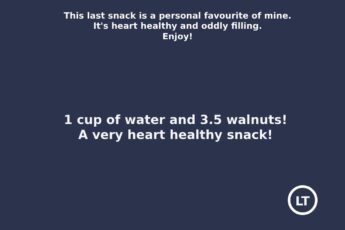Last Updated on September 26, 2025 by Local Trainer
Are you ready to embark on a plant-based journey and experience the amazing benefits of a vegan lifestyle? Look no further, because our comprehensive guide to our 31-day vegan meal plan is here to help you thrive on a plant-based diet. Whether you’re a lifelong vegan or simply looking to incorporate more plant-based meals into your life, this guide has everything you need to succeed.
In this article, we’ll provide you with delicious and nutritious recipes for breakfast, lunch, dinner, and snacks, all tailored to meet your dietary needs. We’ll also share valuable tips on meal prep, grocery shopping, and plant-based substitutes, giving you the tools to make this lifestyle change sustainable and enjoyable. Our meal plan is designed to ensure that you’re getting all the essential nutrients your body needs, so you can feel energized and satisfied throughout the day.
Say goodbye to boring salads and hello to a world of flavor and creativity. Join us on this 31-day vegan meal plan and discover how delicious and fulfilling plant-based eating can be. Get ready to transform your health, embrace a sustainable lifestyle, and nourish your body with wholesome, plant-powered goodness.
A plant-based diet offers a wide range of health benefits that can transform your life. By focusing on whole foods such as fruits, vegetables, whole grains, legumes, nuts, and seeds, you’ll be nourishing your body with essential vitamins, minerals, and antioxidants. Research has shown that a plant-based diet can reduce the risk of chronic diseases such as heart disease, diabetes, and certain types of cancer. Additionally, a vegan lifestyle is environmentally friendly, as it reduces greenhouse gas emissions, water usage, and deforestation associated with animal agriculture.
Contrary to popular belief, a plant-based diet can provide all the necessary nutrients your body needs. By incorporating a variety of plant-based foods, you can easily meet your protein, calcium, iron, and vitamin B12 requirements. Plant-based proteins such as tofu, tempeh, lentils, and chickpeas are not only nutritious but also delicious and versatile. Calcium-rich foods like leafy greens, fortified plant-based milk, and tofu can support bone health, while iron-rich foods like spinach, quinoa, and lentils can prevent iron deficiency. To ensure adequate vitamin B12 intake, it’s recommended to take a supplement or consume fortified foods like plant-based milk or breakfast cereals.
There are several misconceptions surrounding plant-based diets that often deter people from giving them a try. One common myth is that plant-based diets lack sufficient protein. However, with careful planning and a variety of protein sources, it’s easy to meet protein needs on a vegan diet. Another misconception is that plant-based diets are expensive. While some specialty vegan products can be pricey, a plant-based diet centered around whole foods can actually be more affordable than a diet that includes animal products.
Another concern people often have is that a plant-based diet may lead to nutrient deficiencies. However, with proper planning and a varied diet, it’s possible to get all the essential nutrients on a vegan diet. It’s important to pay attention to nutrients like vitamin B12, iron, calcium, and omega-3 fatty acids, which are commonly found in animal products. By incorporating fortified foods and supplements as needed, you can ensure that you’re meeting your nutrient requirements.
When creating a 31-day vegan meal plan, it’s essential to understand the macronutrients and micronutrients your body needs. Macronutrients include carbohydrates, proteins, and fats, which provide energy and support various bodily functions. To ensure a well-rounded and balanced meal plan, include a variety of whole grains, legumes, nuts, and seeds as sources of carbohydrates and proteins. Healthy fats can be obtained from sources like avocados, nuts, and seeds.
Micronutrients are essential vitamins and minerals that your body needs in smaller amounts but are equally important for overall health. Key micronutrients to focus on in a vegan meal plan include calcium, iron, vitamin B12, vitamin D, and omega-3 fatty acids. Calcium is vital for bone health and can be found in plant-based milk, tofu, and leafy greens. Iron is necessary for oxygen transport and can be obtained from sources like lentils, spinach, and fortified cereals. Vitamin B12 is essential for nerve function and can be obtained through fortified foods or supplements. Vitamin D, which supports bone health and immune function, can be obtained through sun exposure or fortified foods. Omega-3 fatty acids, important for heart health and brain function, can be found in flaxseeds, chia seeds, and walnuts.
Transitioning to a plant-based diet doesn’t have to be overwhelming. Start by gradually replacing animal products with plant-based alternatives. Experiment with new recipes and flavors to keep your meals exciting and satisfying. It’s also helpful to educate yourself about plant-based nutrition and seek support from online communities or local vegan groups. Setting realistic goals and focusing on the positive aspects of a plant-based lifestyle can make the transition smoother and more enjoyable.
Creating a 31-day vegan meal plan can be a fun and creative process. Start by identifying your favorite plant-based recipes and build your meal plan around them. Aim for a variety of flavors, textures, and cuisines to keep your taste buds engaged. Incorporate seasonal fruits and vegetables to maximize freshness and nutritional value. Plan your meals in advance and make a shopping list to ensure you have all the necessary ingredients on hand. Don’t forget to include snacks and treats to satisfy cravings and keep you energized throughout the day.
Stocking your pantry with essential staples is key to maintaining a plant-based lifestyle. Some must-have items include whole grains like quinoa, brown rice, and oats, which can serve as the base for many plant-based meals. Legumes such as lentils, chickpeas, and black beans are excellent sources of protein and can be used in soups, stews, salads, and more. Nutritional yeast is a great substitute for cheese and adds a savory flavor to dishes. Other pantry staples include plant-based milk, nut butters, spices, herbs, and condiments to enhance the taste of your meals.
Meal prepping and batch cooking can make following a vegan meal plan much easier and convenient. Set aside a specific time each week to plan your meals, chop vegetables, and cook in bulk. Portion your meals into individual containers for easy grab-and-go options throughout the week. You can also freeze leftovers or pre-cooked ingredients to save time and minimize food waste. Investing in quality storage containers and kitchen tools like a food processor or blender can streamline the meal prep process.
One of the keys to thriving on a plant-based diet is incorporating variety and flavors into your meals. Experiment with different cooking techniques, spices, and herbs to make your dishes more exciting. Try international cuisines like Thai, Mexican, or Indian, which often have a wide range of vegan options. Don’t be afraid to try new ingredients like tempeh, seitan, jackfruit, or nutritional yeast to add unique flavors and textures to your meals. Get creative with your salads by adding a variety of vegetables, fruits, nuts, and dressings to keep them interesting.
Eating out and traveling can sometimes be challenging on a plant-based diet, but with a little planning, it’s absolutely doable. When dining out, research vegan-friendly restaurants in advance or call ahead to inquire about vegan options. Most restaurants are happy to accommodate dietary preferences with advance notice. When traveling, pack portable snacks like nuts, seeds, protein bars, or fresh fruits to keep you fueled between meals. Look for grocery stores or farmers’ markets at your destination to stock up on plant-based essentials. It’s also a good idea to download vegan-friendly restaurant or travel apps to find vegan options in unfamiliar places.
Say goodbye to boring salads and hello to a world of flavor and creativity. Join us on this 31-day vegan meal plan and discover how delicious and fulfilling plant-based eating can be. Get ready to transform your health, embrace a sustainable lifestyle, and nourish your body with wholesome, plant-powered goodness.




